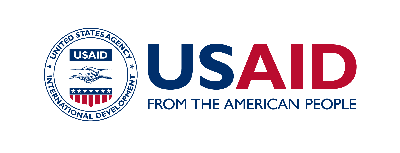
The issue of dynamics of water quality changes is a centerpiece of many research studies. However, systematic understanding of the linkages between emerging climate change challenge and water quality studied very rarely. This project is to fill that knowledge gap through its objective, which is to assess impacts of climate change on surface water quality of the Amu Darya River and develop a "climate change - water quality" model, which will provide needed information to decision makers for elaboration of possible adaptation actions.
Research planned in this proposal looks into science-practice interactions on environmental issues. Water quality change dynamics are the focus of many research studies; however, systematic understanding of the linkages between emerging climate change challenges and water quality is very rarely studied. In the current context, most of the climate-related studies in Central Asia are focused on water quantity impacts and their implications for transboundary water allocation in the region. However, the studies have neither investigated nor documented the water quality aspects of climate change impacts, especially for Central Asia's two biggest river systems (Amu Darya and Syr Darya). The main objective of this PEER project is to assess the impacts of climate change on surface water quality of the Amu Darya River and develop a "climate change - water quality" model that will provide much needed information to decision makers for elaboration of possible adaptation actions. The research is aimed at putting water quality back on the agenda by taking a holistic view on climate change that will affect every aspect of water resources, including quantity, quality, inter-state/ transboundary water management, and, in the longer run, food security and sustainable development in the region as a whole.
Even though it is within the mandate of transboundary organizations, such as the river basin management organization BVO Amudarya, the issue of water quality in the basin is currently neglected due to the absence of relevant information and data in the region, as well as the lack of the capacity to investigate the issue. Therefore, the project will also transfer acquired knowledge and data to the region and enhance research capacities in Central Asia based on the tools, approaches, and methods to be applies. The study will be scientifically complemented by counterpart researchers from West Virginia University, who will take part in joint discussions of the research design integrating existing models into a new Climate Change Impact on Water Quality in the Amu Darya Basin (CCIWQAB) model. In addition to helping with the calibration, validation, simulation stages, and analysis of results, the WVU specialists will organize training workshops for CAREC researchers on methodological aspects and relevant numerical and analytical tools for water quality predictions.
Given the project’s goal of contributing to regional water cooperation by improving regional knowledge, data output, information sharing, and capacities, the research effort will be carried out by scientists from CAREC and counterparts from Afghanistan, Tajikistan, and Turkmenistan, including the basin organization BVO Amudarya. A special focus will be to build the capacity of BVO Amudarya in terms of water quality maintenance. The project should also help to raise awareness of states and key stakeholders on climate change impacts on water quality. A series of policy dialogues among policy makers that share water in the Amu Darya Basin will be organized to share results of the study.
-
To assess natural and anthropogenic factors affecting the water quality in Amu Darya River;
-
To develop plausible climate-water scenarios for Amu Darya River and identify water quality outcomes of different scenarios through modeling exercise; To identify major changes in water quality indicators under different climate –water scenarios and ‘hotspots’ in the river basin;
-
To inform policy makers and community of water researchers and professional on research findings and implications, targeting changes in policies and practices in target countries based on project results;
-
To transfer acquired knowledge and data to the region; extend research capacities (based on adopted tools, approaches, methods etc.) in Central Asia for further studies.
The research includes four phases:
-
Retrospective assessment of water quality changes in Amu Darya River will be conducted in order to understand functional relationships between seasonal runoff, irrigation water use and return water to the river;
-
Different water-climate, scenarios will be tested via modeling exercise;
-
The research impact of the climate change will be disaggregated for the individual indicators of water quality;
-
Research findings, tools, models developed will be used to facilitate a policy dialogue with national as well as regional water management structures such as BVO Amu Darya, ICWC, ICSD and IFAS.
Such cooperation platform for regional organizations exist within CAREC’s current activities and its development strategy. The research study will be scientifically complimented by researchers from the West Virginia University in joint discussion of the research design and integrating the models.
Expected results in terms of outputs will be:
-
Review of Water Quality situation in Amu Darya- analytical report/paper;
-
Model results and scenarios;
-
Capacity building events;
-
Policy dialogue- policy briefs.
In terms of results:
-
Knowledge, methods, tools and instruments on analysis of impacts of climate change on water quality;
- Awareness on impact of the climate change in water quality in Amu Darya River.
Project manager – Mr. Shakhboz Akhmedov
E-mail: shakhmedov@carececo.org
Tel.: +7 727 265 43 33 (ext. 205)
